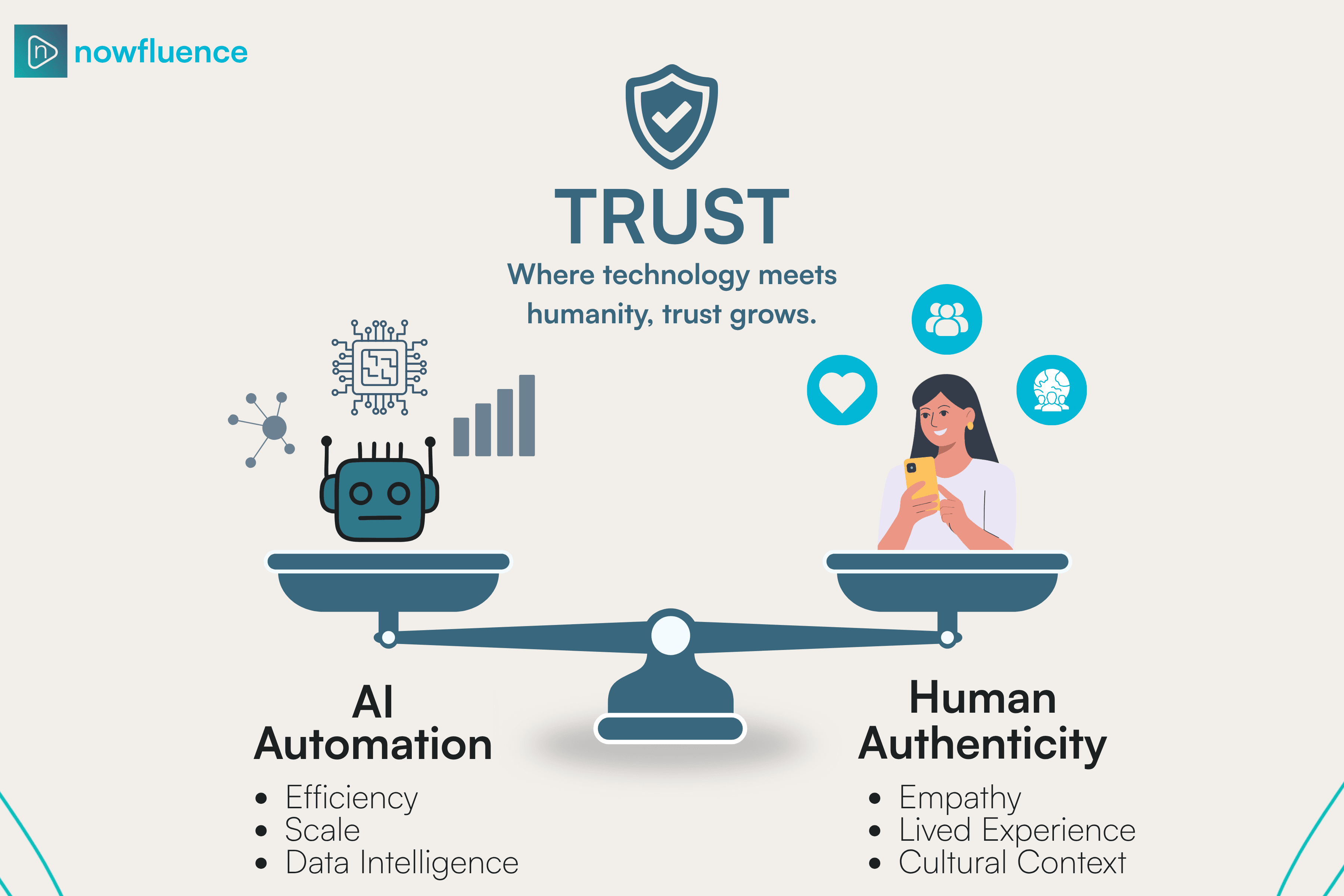Trust in the Age of AI Commerce: Why Authentic Influencers Matter More Than Ever
As AI transforms how people search, shop, and decide, trust becomes the ultimate differentiator. Learn why authentic creators remain essential for brands in the age of AI commerce and automation.
October 21, 2025
As artificial intelligence reshapes the way people search, shop, and decide, one thing has become clear: in the age of automation, trust is the ultimate currency. Consumers are increasingly comfortable with generative AI tools recommending what to buy or where to go, but they are also growing skeptical of what and who they can believe.
Recent studies, from Deloitte’s 2025 Connected Consumer Survey to new research from Northeastern University and The Axis Agency, all point to the same conclusion: while AI can deliver efficiency and scale, authentic human influence remains the foundation of trust.
Innovation Without Trust Is Just Noise
According to Deloitte, more than half of U.S. consumers now use generative AI regularly, yet 70% worry about data privacy, and over 60% say it has become harder to trust what they see online. Brands that lead with innovation but neglect transparency are falling behind those that pair bold technology with responsible communication.
Deloitte calls these companies “trusted trailblazers,” meaning brands that balance innovation with accountability. They outperform others in customer satisfaction, loyalty, and even spending. In other words, responsible innovation pays off.
But as AI tools start to shape recommendations, content, and even social media voices, the stakes for trust rise dramatically. The question is no longer whether AI can scale influence; it is whether people still believe in what is being said.

The Risk of Synthetic Influence
A 2025 study from Northeastern University warns that AI-powered influencers can damage brand trust more than their human counterparts. When a virtual influencer misrepresents a product, consumers often blame the brand directly because they assume the AI’s words were programmed or approved by the company.
That means automation amplifies accountability. Virtual or AI-generated ambassadors might save time and production costs, but when they speak, they speak as the brand itself. Without clear boundaries and transparency, one error can quickly escalate into a reputational crisis.
In contrast, human influencers act as bridges, not bots. Their recommendations feel genuine because they reflect personal experience, emotion, and culture. They can make mistakes, adjust, and engage in real dialogue. That human elasticity is what makes trust possible.
Culture and Context Still Lead the Way
The Axis Agency captures this reality perfectly: “AI can replicate aesthetics, but it cannot replicate lived experience.” Culture is not code. It is lived context, the subtle markers of identity that create belonging and credibility.
Whether it is a bilingual creator connecting through language or a local influencer referencing community traditions, authentic storytelling translates into emotional precision, something no algorithm can replicate.
For brands, this means authenticity is not the opposite of scale. It is how scale becomes sustainable. Campaigns that combine cultural relevance with AI-enabled insights outperform those that rely on automation alone.
The Future Is Human + AI
AI will continue to transform how brands discover creators, analyze performance, and optimize campaigns. But trust will continue to flow from human voices, creators who can interpret culture, empathize with their audiences, and represent brands with genuine conviction.
The winning equation is not human versus AI. It is human plus AI. Machines can handle structure, efficiency, and discovery. People provide context, creativity, and connection.
In the new AI economy, brands that understand this balance will stand out not just for innovation, but for integrity. As the Deloitte report concludes, “trust isn’t a nice-to-have, it’s a growth strategy.”
And in the world of influencer marketing, authentic creators are the strategy.
Want to discuss insights from this study? Reach out to our research team.